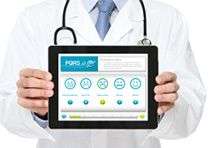Prestigious endorsement for tool which assesses patient recovery

The Post-Operative Quality Recovery Scale (PQRS), a tool that allows clinicians to measure the quality of their patients' recovery from surgery and anaesthesia, has been endorsed by the European Society of Anaesthesia.
Developed by group of world-leading academics, including Professor Stanton Newman and Dr Nadine McGale from City University London's School of Health Sciences, the PQRS tool has been released for general use free of charge to clinicians around the world and has been used in a number of academic studies.
Designed for its ease of use in any clinical setting and for any procedure anywhere in the world, the PQRS tool measures multiple aspects, or domains, of a patient's recovery. It then provides new insights into how poor recovery in one particular domain may impact on other aspects of patient recovery.
The six domains which the tool assesses are:
• Physiological
• Nociceptive (pain and nausea)
• Emotive (anxiety and depression)
• Functional recovery (return of activities of daily living)
• Self-assessed recovery
• Cognitive recovery.
Professor Newman, said: "Success of recovery from surgery depends on factors such as the type of surgery, surgical and post surgical care, inflammation, different anaesthetic drugs and techniques amongst other factors.
"Using the PQRS tool will allow clinicians to track the recovery of their patients and tailor care techniques to improve the speed and quality of patient recovery from surgery and anaesthesia.
"This endorsement by the European Society of Anaesthesia is further evidence of the growing recognition of the effectiveness of this tool."

















